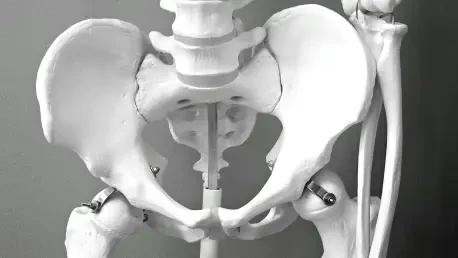Imagine a world where millions of women silently endure a condition that disrupts their daily lives, yet societal stigma prevents them from seeking help, and pelvic organ prolapse (POP), affecting over 200 million women globally, is precisely such a challenge, causing physical discomfort and emotional strain. Often, those affected feel isolated, hesitant to discuss their struggles even with healthcare providers. Amid this landscape of unmet needs, a Danish healthtech startup, Sylvia Health, emerges with a bold mission to transform pelvic health care. By developing an innovative medical device tailored to the specific anatomical needs of women with POP, this company aims to offer a less invasive and more effective alternative to existing treatments. This endeavor not only addresses a critical gap in women’s health but also raises a compelling question about the potential for startups to drive meaningful change in specialized medical fields long overlooked by mainstream innovation.
Addressing a Hidden Health Crisis
Sylvia Health steps into a domain where traditional solutions for pelvic organ prolapse have often fallen short. Current treatments, such as surgery or the use of transvaginal mesh, carry significant risks and limitations, with the latter facing global criticism due to severe complications reported by many patients. The startup’s approach centers on a novel device, similar to a modified menstrual cup, designed specifically to support prolapsed organs rather than merely manage symptoms. This patient-focused innovation seeks to align with the body’s unique requirements, offering a stark contrast to the generalized methods of the past. By prioritizing anatomical specificity, Sylvia Health aims to provide relief to countless women who find existing options unsuitable or ineffective, potentially reshaping how this condition is managed on a broader scale. The urgency for such a solution is evident, as the stigma surrounding POP continues to hinder open dialogue and timely intervention.
The impact of pelvic organ prolapse extends far beyond physical discomfort, often affecting mental well-being and quality of life. Sylvia Health recognizes this multifaceted challenge and has committed to a design process that incorporates feedback from those directly affected. By collaborating with women living with POP, as well as gynecologists and pelvic health physiotherapists, the company ensures that its device addresses real-world needs rather than theoretical assumptions. This user-centered methodology not only enhances the practicality of the solution but also builds trust among potential users who have long felt neglected by the medical community. If successful, this approach could serve as a model for other healthtech initiatives targeting underaddressed conditions, highlighting the power of empathy-driven innovation in transforming patient outcomes and fostering a more inclusive healthcare landscape.
Innovating Through Collaboration and Research
Sylvia Health’s journey began under the Novo Nordisk Foundation BioMedical Design Fellowship Program, a platform that provided the foundation for extensive clinical observations and prototype development. This rigorous process allowed the startup to create medical-grade prototypes refined through direct input from affected women and medical experts. The collaborative nature of this work underscores a commitment to creating solutions that are not only effective but also user-friendly, addressing the practical challenges faced by patients in their daily lives. With clinical trials now underway to assess the device’s safety and impact on quality of life, Sylvia Health is methodically building a case for its innovation. The focus on evidence-based outcomes reflects a broader trend in healthtech, where startups must balance creativity with the stringent demands of medical validation to gain credibility.
Looking ahead, the startup faces the critical task of securing regulatory approval while planning initial distribution in Denmark, with aspirations to expand into larger European markets. This phased approach hinges on proving the concept’s viability and establishing business sustainability. Beyond clinical trials, Sylvia Health is actively seeking strategic partnerships to facilitate global reach, recognizing that widespread adoption will require robust support networks. The device, which is patent-pending and intended as a prescribed medical tool, could fill a significant gap left by options like pessaries or surgery, which are not universally suitable. This potential to offer a minimally invasive alternative positions the company as a frontrunner in redefining pelvic health care, provided it can navigate the complex landscape of healthcare regulations and market dynamics over the coming years.
Shaping the Future of Women’s Health
The broader implications of Sylvia Health’s work signal a shift toward personalized, less invasive medical solutions in women’s health, a field historically underserved by innovation. Conditions like pelvic organ prolapse have often been sidelined, with limited research and development dedicated to improving outcomes. By adopting an anatomy-first perspective, this startup challenges the status quo, prioritizing patient needs over one-size-fits-all approaches. Such a focus not only offers hope to millions but also sets a potential new standard for how similar conditions are addressed in the future. The emphasis on tailoring treatments to individual anatomies could inspire other companies to rethink their strategies, fostering a wave of innovation that places patient well-being at the forefront of medical advancements.
Reflecting on this narrative, Sylvia Health’s efforts mark a pivotal moment in addressing a long-ignored health issue with fresh determination. The path forward involves continuing clinical evaluations to ensure the device meets stringent safety and efficacy standards. Strategic collaborations are being sought to amplify distribution capabilities, while plans to expand beyond initial markets remain a key focus. For women affected by pelvic organ prolapse, the prospect of a reliable, non-invasive option represents a significant step toward reclaiming normalcy. As the industry watches this startup’s progress, the broader lesson is clear: targeted innovation, grounded in real patient experiences, holds the power to transform lives and reshape healthcare priorities for generations to come.









